Gotta hatch ’em all!
Pokémon Go isn’t just about catching Pokémon — hatching is a big part of the game as well. You get Pokémon Go Eggs from spinning PokéStops, from friend gifts, and, even as a reward for being especially active. Then you incubate them by walking with them for 2 KM, 5 KM, 7 KM, 10 KM, or even 12 KM. Once you’ve walked the specified distance, Pokémon will hatch from those Eggs, but each type of Egg has different Pokémon that can hatch and those possible Pokémon change often. Luckily, we here at iMore know exactly what can hatch from any Pokémon Egg!
What kind of Pokémon Eggs are there in Pokémon Go?
Each type of Pokémon Egg can hatch different kinds of Pokémon and the potential Pokémon change periodically, along with the rates at which they hatch. The Pokémon in an Egg is determined when it is picked up, as well as where it is picked up. If you picked up an Egg a few weeks ago and new Pokémon are added to the pool this week, your Egg won’t have something new in it. Likewise, if you pick up an Egg in the US, it cannot have a Mime Jr. in it since Mime Jr. is exclusive to the UK.
There are seven kinds of Pokémon Eggs in Pokémon Go:
- 2 KM Eggs with green spots.
- 5 KM Eggs (standard) with yellow spots.
- 5 KM Eggs* (Weekly Fitness 25 KM) with purple spots.
- 7 KM Friend Eggs that are yellow with pink spots
- 10 KM Eggs (standard) with purple spots.
- 10 KM Eggs* (Weekly Fitness 50 KM) with purple spots.
-
12 KM Strange Eggs with red spots
-
Note: Weekly Fitness Reward Eggs are visually identical to the standard 5 KM and 10 KM Eggs received from Pokéstops but have a much smaller pool of potential Pokémon.
Rarity of Eggs in Pokémon Go
While any Pokémon from a specific Egg pool can hatch from that particular Egg, they do not all hatch with the same frequency. Shortly before the release of Gen II, the players over at The Silph Road did an extensive breakdown of the chances that certain Pokémon would hatch, but these days, their community keeps track of all their Eggs and provide a running tally for chances.
What kind of Pokémon hatch from each type of Egg?
As of November 6, 2020, the following Pokemon can be found in each tier of eggs in Pokémon GO:
2 KM Eggs — standard
- Zubat*
- Poliwag*
- Cubone*
- Magikarp*
- Mareep*
- Wooper
- Snubbull*
- Wailmer*
- Swablu*
- Buizel
- Bunneary*
- Snivy
- Tepig
- Oshawott
- Minccino*
2 KM Eggs — region exclusive
- Volbeat* (Europe, Asia, and Australia)
- Illumise* (North America, South America, Africa)
5 KM Eggs — standard
- Machop*
- Seel*
- Voltorb*
- Lickitung*
- Eevee*
- Pineco*
- Ralts*
- Aron*
- Feebas*
- Clamperl*
- Hippoptas*
- Blitzle
- Roggenrola*
- Gothita
- Solosis
5 KM Eggs — region exclusive
Currently, there are several Regional Exclusive Pokémon that can hatch from 5 KM Eggs. These Pokémon can only hatch from Eggs picked up in the part of the world where these Pokémon can be caught.
- Farfetch’d* (Asia only)
- Kangaskhan* (Australia)
- Tauros* (North America)
- Heracross (South America, Central America, Mexico, and southern Florida and Texas)
- Corsola (Around the equator)
- Torkoal (Western/Southeast Asia)
- Tropius (Africa, Middle East, and the Mediterranean)
- Relicanth (New Zealand, Fiji, Vanuatu, and New Caledonia)
- Pachirisu (Canada, Russia, and Alaska)
- Mime Jr.* (Europe)
- Chatot (Southern Hemisphere)
- Carnivine (Southeast US)
- Pansage (Asia, and the Pacific)
- Pansear (Europe, the Middle East, Africa, and India)
- Panpour (Americas and Greenland)
- Maractus (Southern United States, Mexico, Central America, the Caribbean, and South America only)
- Bouffalant (New York and the surrounding areas)
7 KM Eggs
Currently, the 7 KM Friend Eggs have been taken over by Adventure Week Pokémon:
10 KM Eggs — standard
- Shinx*
- Gible*
- Riolu*
- Audino
- Timburr*
- Darumaka
- Emolga
- Ferroseed
- Klink*
- Elgyem
- Litwick
- Axew
- Golett
- Rufflet
10 KM Eggs — regional exclusive
A few Regional Exclusive Pokémon can hatch from 10 KM Eggs. Like other Regional Exclusives, these can only show up in Eggs picked up in the regions where these Pokémon can normally be caught:
- Sigilyph (Egypt and Greece)
12 KM Strange Eggs
Introduced on October 12, 2020, Strange Eggs can only be earned from defeating Team GO Rocket Leaders. They currently only contain Dark type and Poison type Pokémon, or Pokémon that evolve into one of those types:
Weekly fitness Eggs
If you enable Adventure Sync, every week you can potentially earn two Eggs. These Eggs look like 5 KM and 10 KM Eggs, but the contents are different.
If you log 25 KM with Adventure Sync in a week, your 5 KM Egg can contain:
If you log 50 KM with Adventure Sync in a single week, your 10 KM Egg can contain:
Asterisk indicates a Pokémon with the potential to be shiny.
How do you get a Pokémon Egg?
Pokémon Eggs are different than the Lucky Eggs you get when you reach a significant new level or buy at the Shop. You can’t buy Pokémon Eggs at all. You have to collect them at PokéStops, receive them in Gifts from friends, or earn them as rewards for meeting Weekly Fitness goals. Spin a stop when you have space for an egg, and there’s a roughly 20% chance you’ll get a Pokémon Egg along with the more common PokéBalls, potions, and revives.
That doesn’t mean you’ll get one egg every five stops, though. Random is random, which means you could get five eggs in a row or none at all. If you keep visiting and spinning Pokéstops, though, you’ll eventually get Pokémon Eggs.
7 KM eggs are not available at Pokéstops. Instead, you get them by opening Gifts send to you by friends. Be sure to open lots of Gifts if you’re after Pokémon found in 7 KM eggs, though if you’re tired of the same Pokémon over and over, you may want to either hold off on opening Gifts for a while or make sure your Eggs are full before you open them.
As of February 2019, Pokémon Go rewards special 5 KM and 10 KM Eggs for completing Weekly Fitness goals through Adventure Sync. If you walk 25 KM in a single week, you will be rewarded a 5 KM Egg. If you walk 50 KM in a week, you will be rewarded with a 10 KM Egg. Unlike 5 KM and 10 KM Eggs retrieved from Pokéstops, these special Eggs only have six potential Pokémon, each with the same chance of hatching. If you walk 100 KM or more in a week, you will be rewarded with both a special 5 KM egg and a special 10 KM egg.
As of October 12, 2020, Players can now earn 12 KM Strange Eggs. These are rewarded for defeating the Team GO Rocket Leaders and contain only Dark type and Poison type Pokémon, or Pokémon that evolve into one of those types. It is not yet known if these Strange Eggs will eventually include other types.
Where do you see Pokémon Eggs when you get them?
Pokémon Eggs are hidden away, but once you know where they are, you can check on which ones you have, and how many, at any time.
- Tap the PokéBall button to bring up the menu.
- Tap the Pokémon button.
- Swipe from right to left to see your Pokémon Eggs.
You can have up to 9 Pokémon Eggs at any one time, so make sure you have space for Eggs before attempting to get another. This is especially important if you are collecting your Weekly Rewards (If you’ve managed to walk 50 KM in a week, you definitely don’t want to miss out on a potential Egg just because you already had 9 Eggs!)
How can you tell which exact Pokémon is in an Egg?
You can’t. Not until you hatch it. While Pokémon Go determines what you’re getting in an Egg the moment the Egg is granted, until that Egg hatches, there is no way to tell for sure what is inside.
That means it doesn’t matter where you are or what you do after you get an Egg. What’s inside is already decided. It’s also why, when Pokémon Go makes a change to Eggs for an event or any other reason, it won’t affect Eggs you already have, only ones you get from that point on. This is especially important for players trying to hatch Regional Pokémon from Eggs. If you don’t pick up the Egg in the particular region where that Pokémon can be found, it cannot be in the Egg.
Okay, how do you hatch a Pokémon Egg?
You hatch your Pokémon Eggs by placing them in Incubators and then walking around until you reach the number of kilometers indicated by the Egg.
Everyone gets one free «Infinite» Incubator that lets you incubate a single Pokémon Go at a time. Pokémon Go will also give you free three-use Incubators when you reach level 6, 10, 15, 20, 25, and 30, and four free when you reach level 40. To use them:
- Go to your Pokémon Egg screen.
- Tap on the Pokémon Egg you want to Incubate.
- Tap on Start Incubation.
- Tap on the Incubator you want to use.
You can also buy additional three-use Incubators, as well as three-use Super Incubators from the Shop. They cost 150 PokéCoins and break after three uses.
- Tap the Incubator button at the bottom right.
- Tap on the Shopping Bag button at the bottom right.
- Tap on the Incubator button.
- Tap on the Exchange For (150 coins) button.
You can also buy them from the Store screen if you’re not already on the Egg screen. And you can buy as many as you like simply by tapping the Exchange For button repeatedly. (As long as you have enough Pokécoins.)
- Tap the PokéBall button to bring up the menu.
- Tap the Shop button.
- Tap on the Incubator button.
- Tap on the Exchange For (150 coins) button.
There are also Super Incubators available for 200 PokéCoins in the PokéShop with a 1.5x hatch rate, so your eggs will hatch 50% faster. Like the regular Incubator, it comes with three charges.
Both three-use Incubators and Super Incubators often show up in special Boxes for discounted rates. Not every Box is a huge bargain, and your particular needs as a player will determine if a Box is a good buy. If you happen to have the extra Pokécoins to spend, check to see what each Box contains instead of just buying individual Incubators.
Once you have the Pokémon Egg in the Incubator, you need to walk to hatch it. How far you have to walk correlates to the distance of the Egg you have.
- Green spots are 2 KM Eggs.
- Yellow spots are 5 KM Eggs.
- Yellow with pink spots 7 KM Friend Eggs.
- Purple spots are 10 KM Eggs.
- Red Spots are 12 KM Strange Eggs.
Some events may reduce the amount of distance you have to walk to hatch an egg. You can view the remaining distance to travel from the Eggs screen. If you notice an event with a shorter distance for egg hatching, be sure to get walking and hatch as many as you can!
Does it matter what type of Incubator you use for every kind of egg?
Any Incubator can be used to hatch any Pokémon Egg. That said, if you want the most from your Incubators:
- Put 2 KM eggs in your unlimited use Incubator first.
- Put 10 KM eggs in your three-use Incubators first.
- If you have Super Incubators, use your 10 KM eggs on those first.
Look at it this way: If you have a 3-use Incubator and you use it for 2 km eggs, it’ll disappear after 6 km. If you use it for 10 km eggs, you’ll get 30 km out of it, or 5x the distance for your money.
Can you see how far you’ve traveled with a Pokémon Go Egg?
Yup! As you walk, the Pokémon Egg screen will update to show you the distance you’ve walked each Egg up to one decimal place. For example, if you walk 1.3 KM, you’ll see 1.3 / 2 KM, 1.3 / 5 KM, or 1.3 / 10 KM.
If you tap on a Pokémon Egg, you can see the distance up to two decimal places.
The distance is updated every few minutes so, don’t worry if you walk for a bit and don’t see any immediate changes.
How fast can you walk to hatch a Pokémon Egg?
It’s currently believed the optimal speed for hatching a Pokémon Go is 10.5 KM/H (6.5 M/H). Go slower, and it’ll just take you longer to hatch. Go faster, and Pokémon Go will discount the distance you’re traveling or, if you go fast enough, ignore it altogether.
If you reach 35 KM/H (22 MP/H), you’ll get the speed-lock popup. At that point, little if any of your distance will be counted.
Do you have to walk, or can you jog, run, cycle, skate, ski… or drive?
You can travel anyway you like, you just can’t exceed 10.5 KM/H if you want all your distance to count, or 35 KM/H if you want anything to count at all.
If you’ve got a great way to go 10.5 KM/H, like on a scooter, skates, or cross-country skis, go for it!
Do you have to travel in a straight line?
Pokémon Go measures distance in a straight line based on the change in GPS position. So, to get maximum distance, you should travel in a straight line too.
It’s believed that Pokémon Go actually records distance more frequently, though. Somewhere between one to four times a minute. So, you could theoretically change direction after a minute or so and still get good results.
Do you have to have Pokémon Go open while you’re traveling?
Not anymore! With the implementation of Adventure Sync, you can now hatch eggs just by having your phone on your person and turned on, without Pokemon Go running. Go into the Settings menu and make sure Adventure Sync is turned on, and your game will track distance and prompt you to hatch eggs when you open the app next.
Do you get anything else from hatching an Egg?
Yes! You also get XP, Candies, and Stardust. XP is always the same; the distance you traveled times 100. So for a 2KM egg, you’ll get 200 XP, a 5KM gives 500 XP, etc. You’ll also receive Stardust (generally more the higher the KM egg it is), and between 5 and 40 Candies of the Pokemon, you hatch at random.
Your Pokémon Go Egg hatching tips?
Do you have any tips or tricks for hatching Eggs in Pokémon Go? Want to show off your latest haul? Drop them into the comments below, and be sure to check out our guide on the Best Portable Battery Packs for iPhone in 2020 so you can keep your phone charged while hatching all these eggs!
Source: imore.com
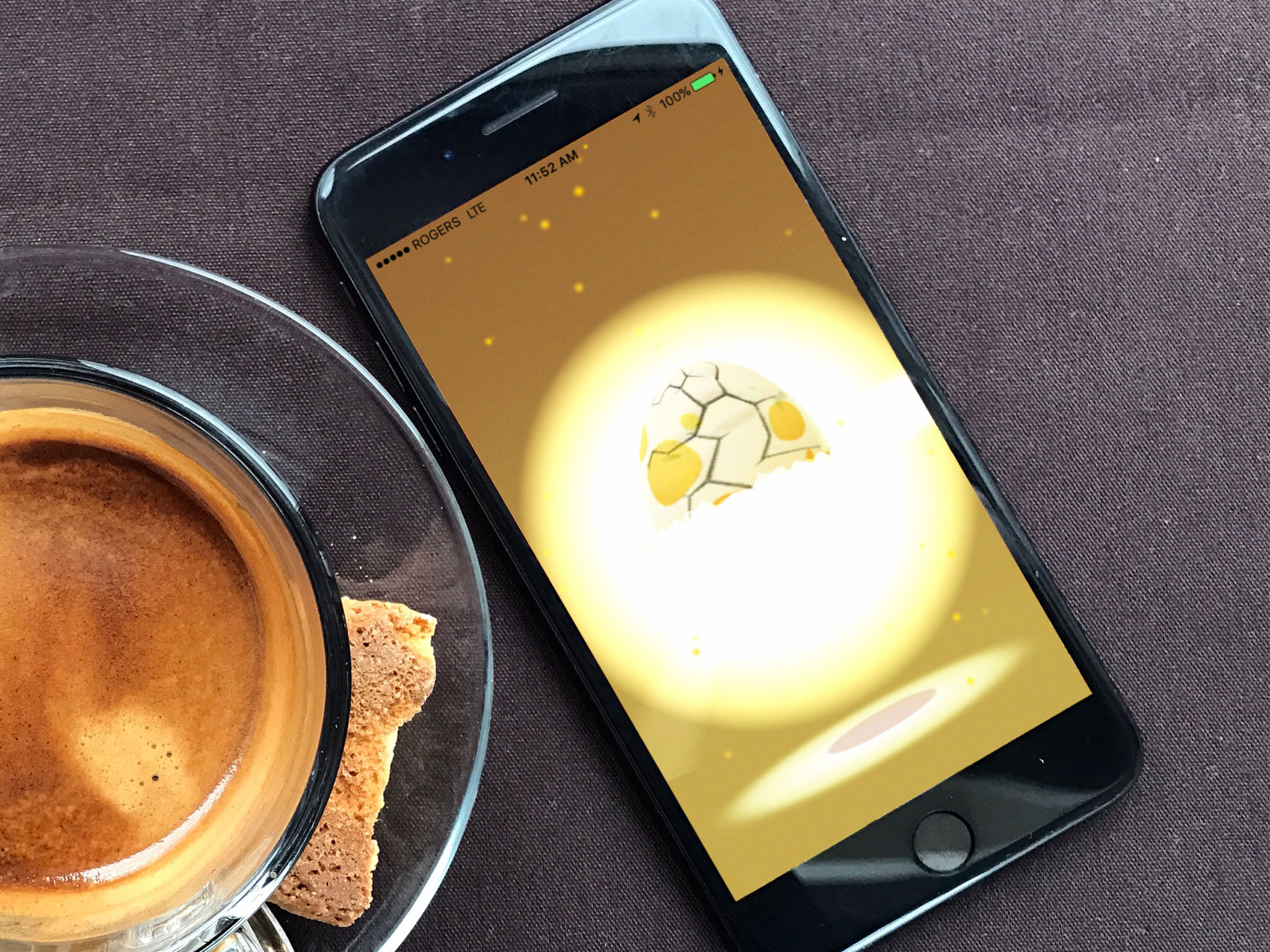
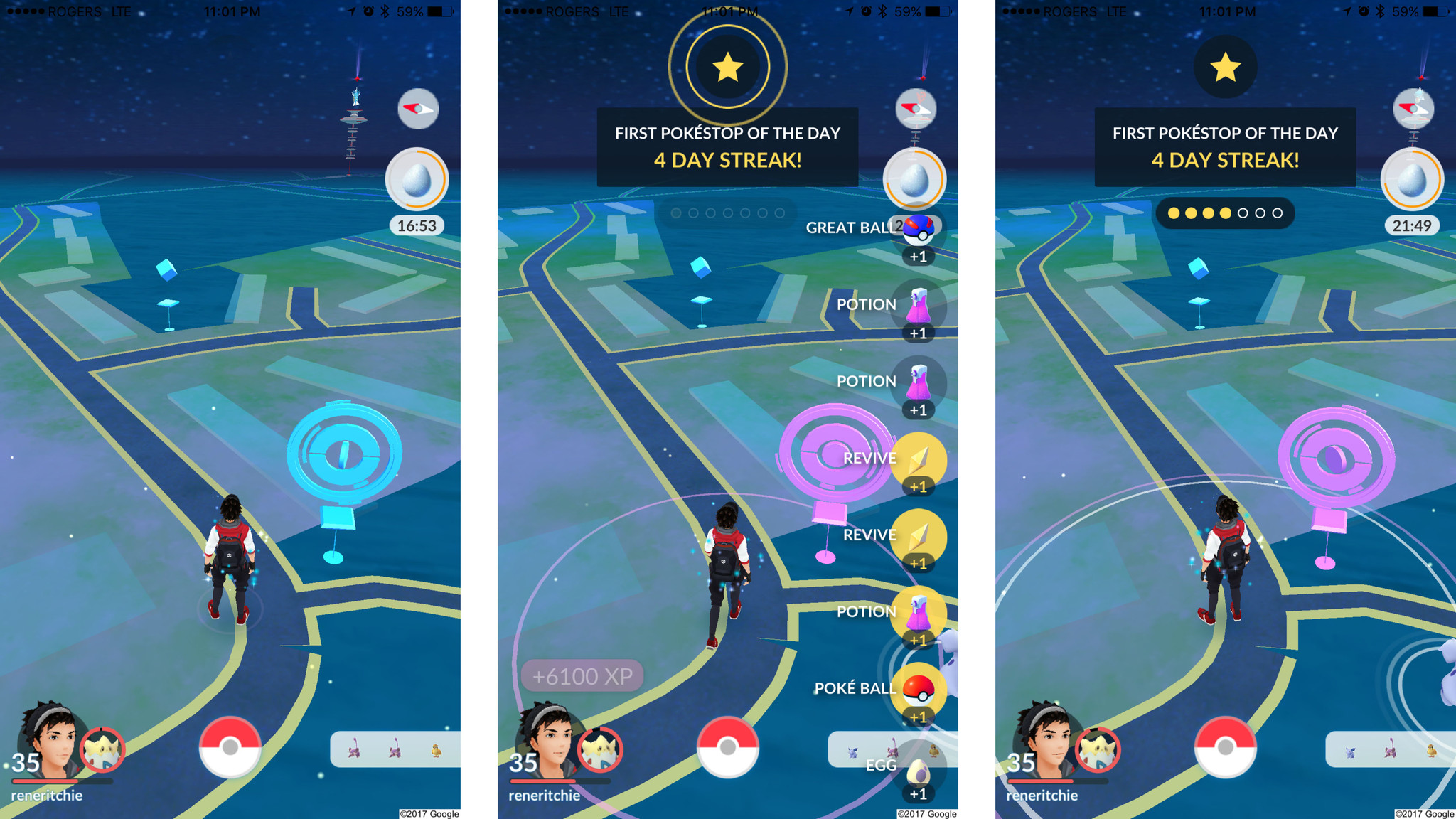
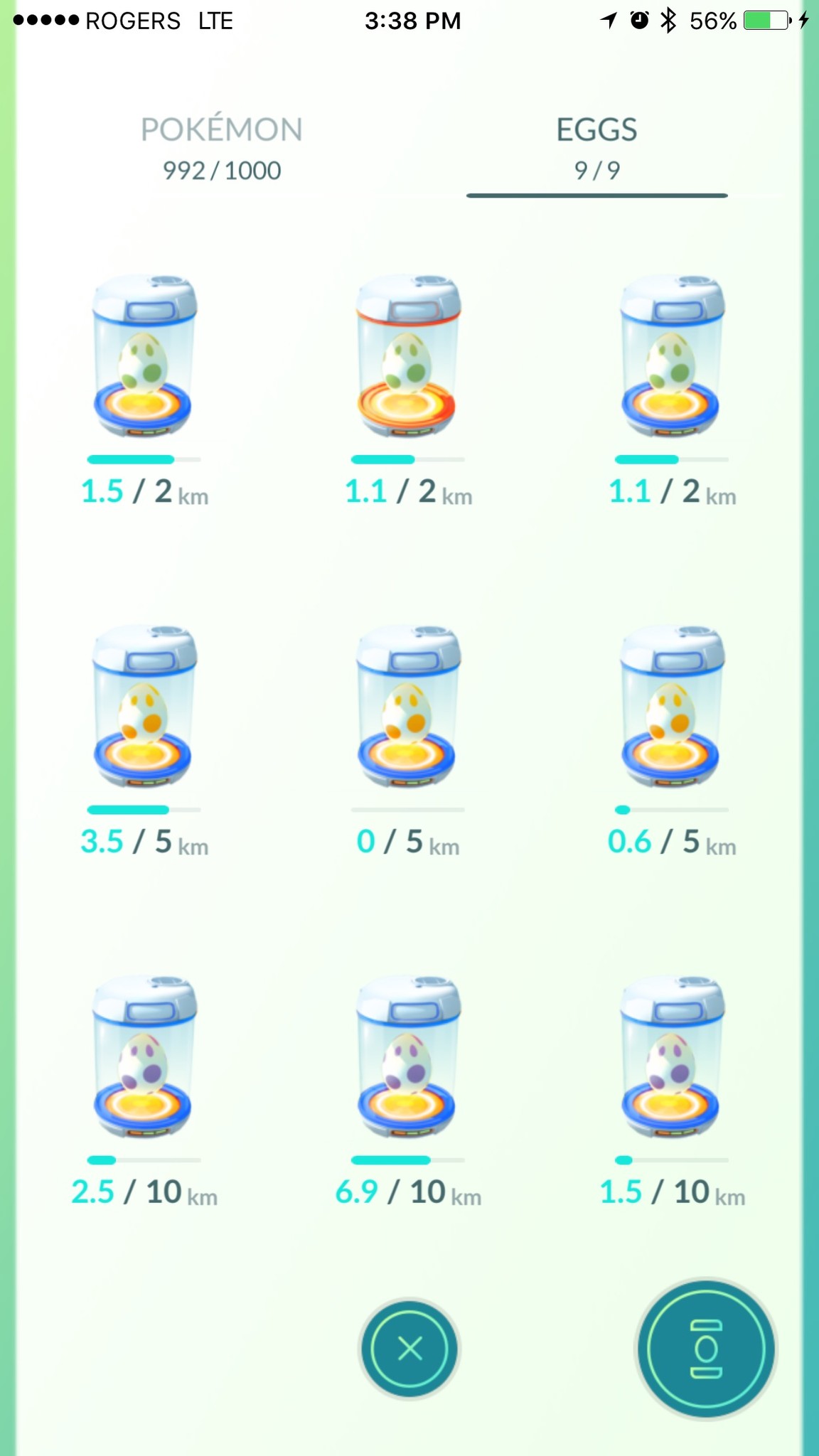
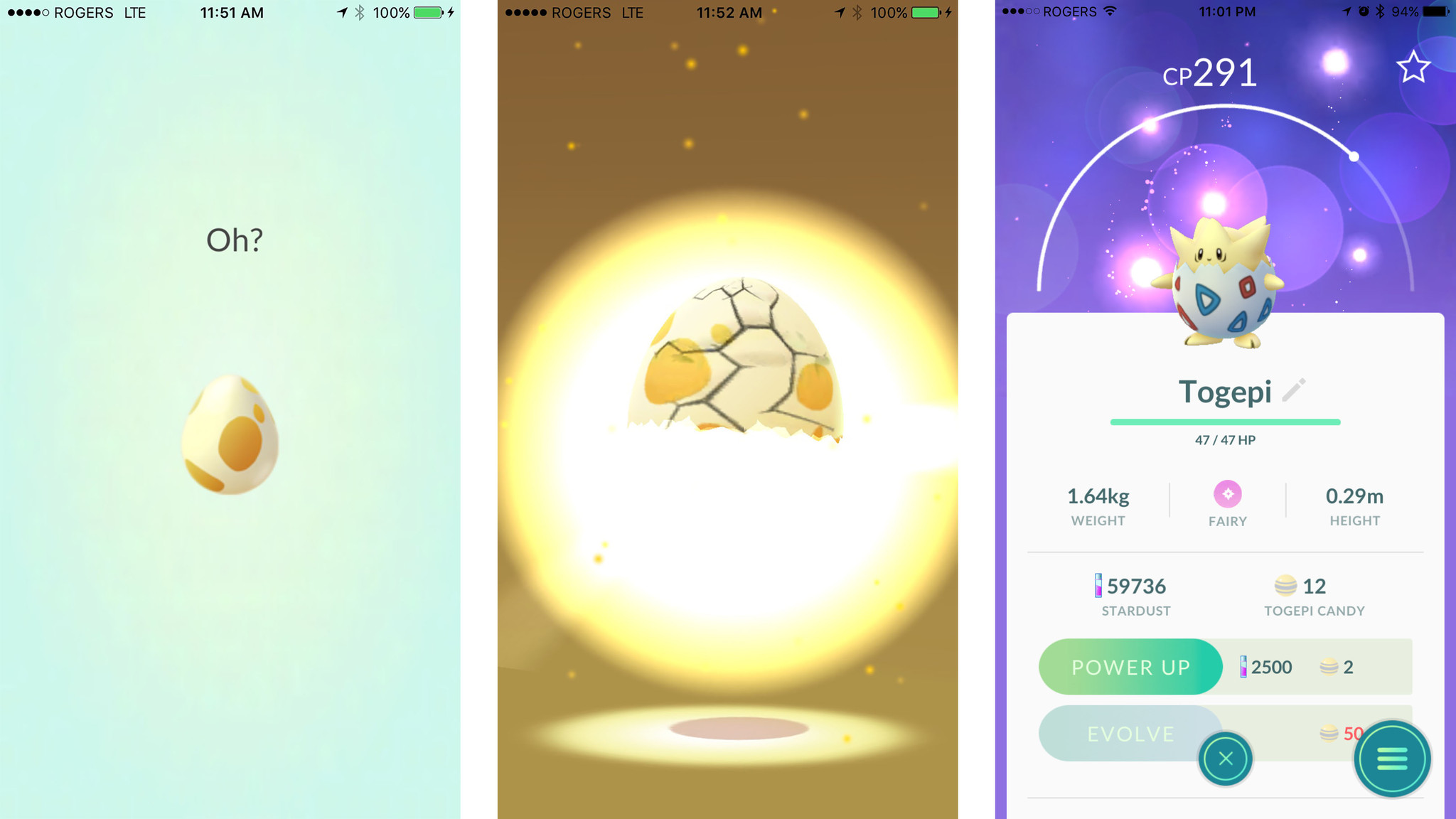
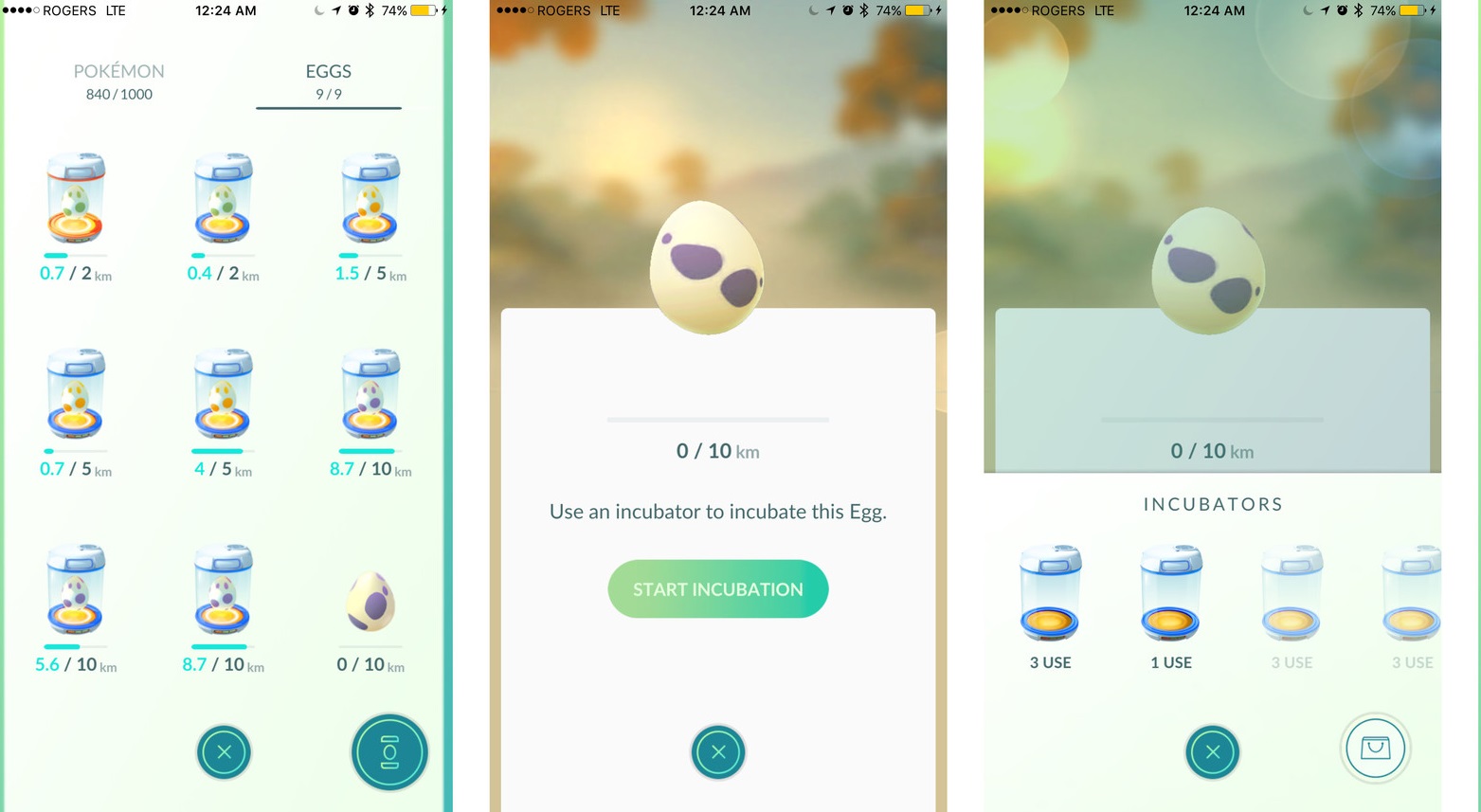
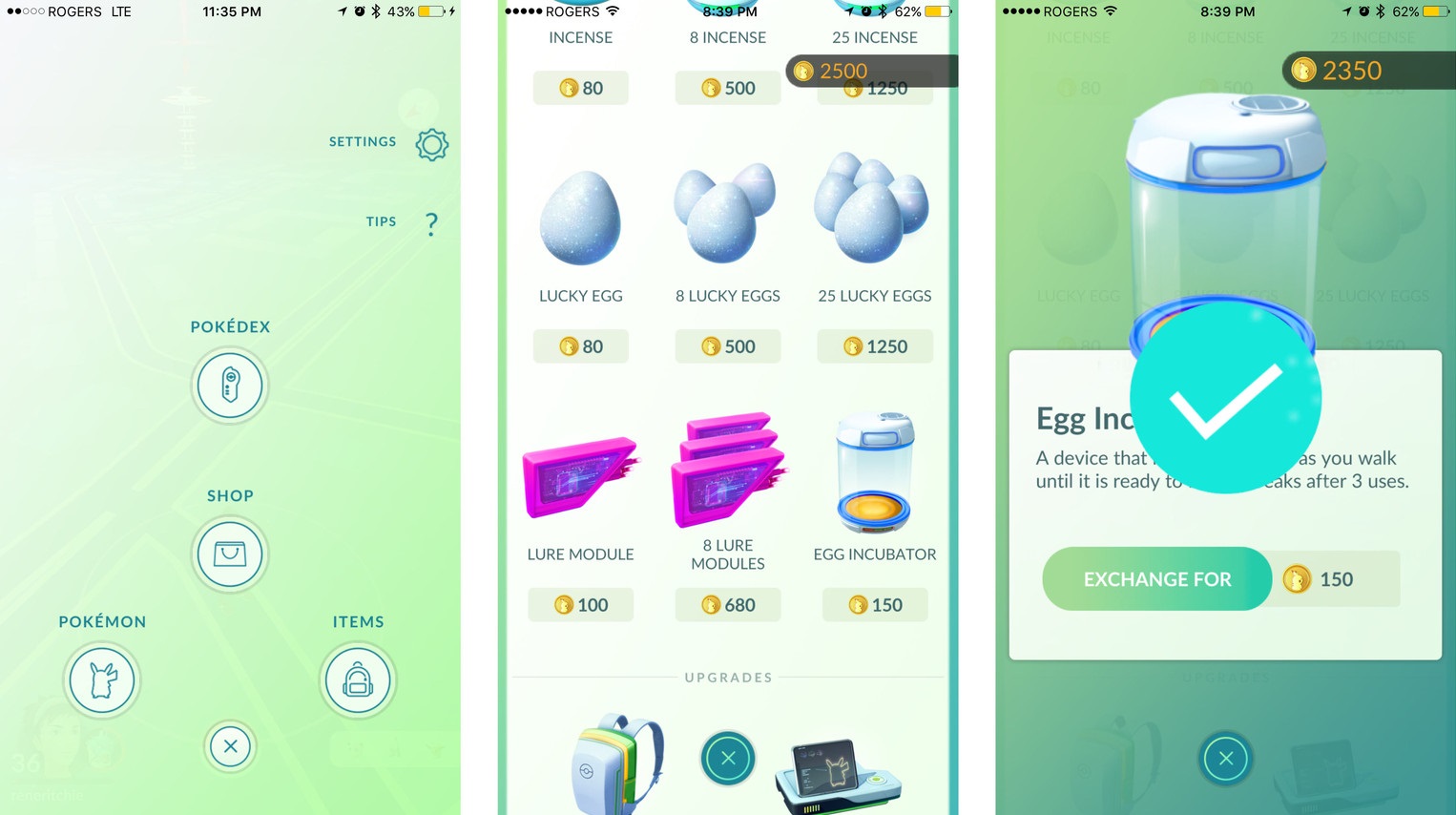
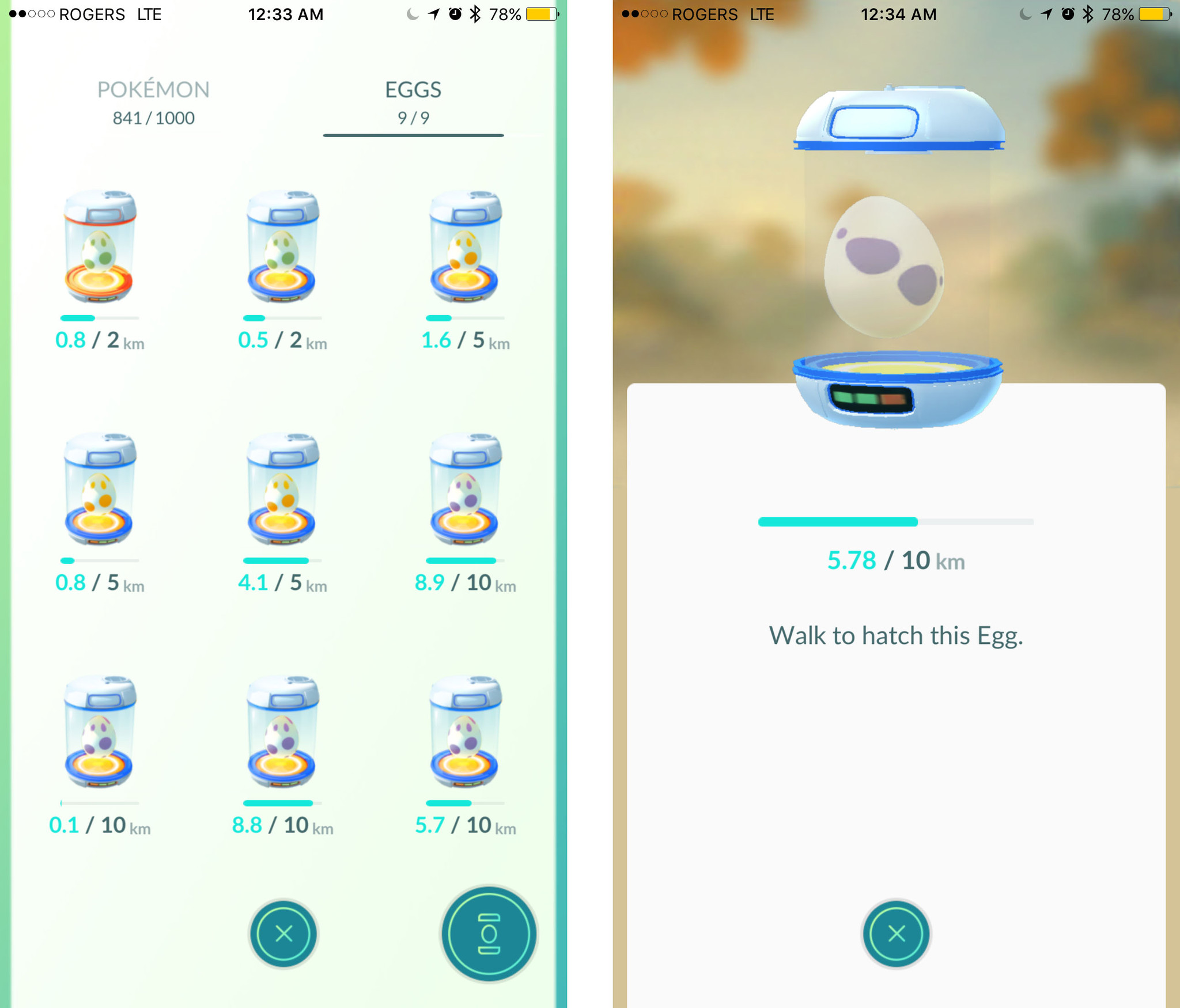


Комментариев нет:
Отправить комментарий